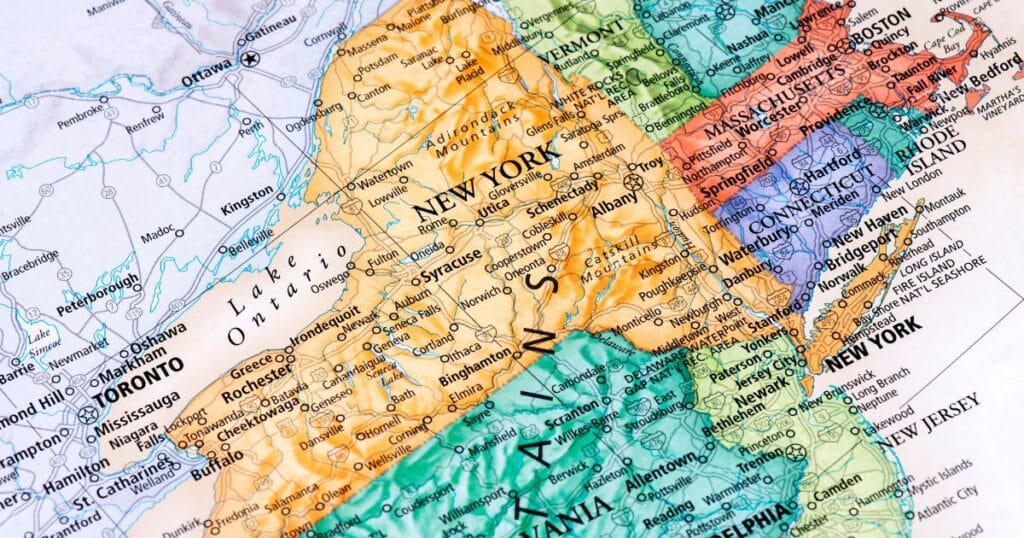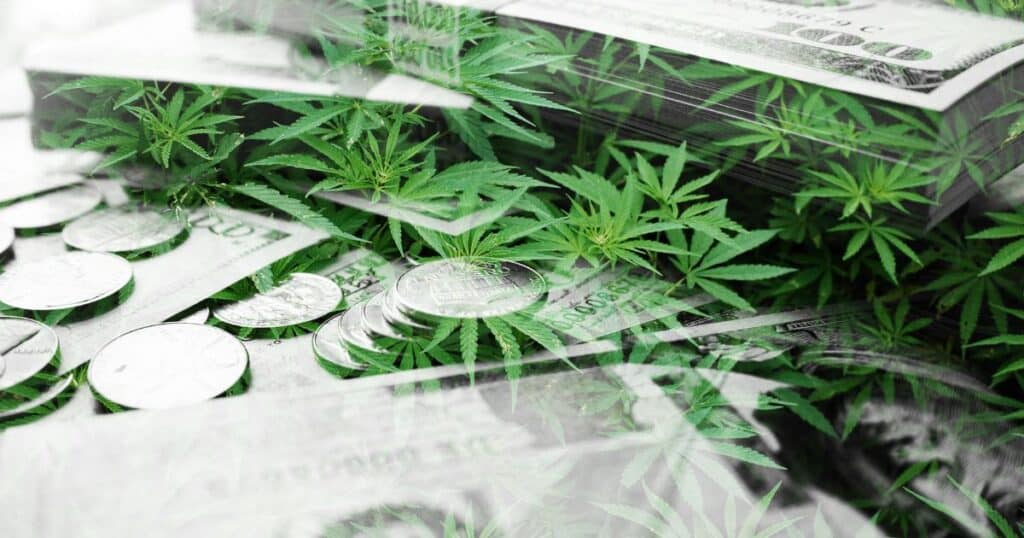As the cannabis industry continues to evolve and expand, so do the regulations surrounding it. In New York, Governor Kathy Hochul is making a bold move to shake up the state’s current tax system for cannabis products. Under her executive budget proposal for 2025, she aims to remove the potency tax and replace it with a wholesale excise tax.
This proposed change has the potential to benefit both cannabis businesses and consumers in the state. Let’s examine what this proposal entails and its potential impact on New York’s cannabis market.

As of now, New York has a potency tax system in place for cannabis products. This means that the tax rate is based on the level of THC (the psychoactive component) present in the product. The higher the THC level, the higher the tax rate.
Currently, there are three levels of tax on cannabis products—3 cents per milligram on edibles, 0.8 cents per milligram on concentrates, and 0.5 cents per milligram of THC on flower.
While some argue this may seem like a logical way to tax cannabis, it has posed challenges for both businesses and consumers. Larger, well-funded companies are better able to afford the higher taxes for their products, creating an uneven playing field for smaller businesses. Additionally, consumers may be pushed towards lower potency products in order to save on taxes.
These challenges have contributed to New York’s legal cannabis market struggling to compete with the illicit market. Governor Hochul’s proposal aims to address these issues and improve the overall market for both businesses and consumers.
Understanding Governor Hochul’s Wholesale Excise Tax Proposal
Under Governor Hochul’s proposed change, the potency tax would be replaced by a wholesale excise tax of 9%. This means that instead of taxing based on THC levels, the state would tax cannabis products at a flat rate based on their wholesale price per the budget briefing book.
“To promote and support the expansion of the legal adult-use cannabis market, the Executive Budget simplifies, streamlines, and reduces the tax collection obligations and burden for cultivators, processors, and distributors by repealing the wholesale THC potency tax, and replacing it with a wholesale excise tax of 9 percent, while maintaining the State retail excise tax rate of 9 percent and the local retail excise tax rate of 4 percent.”
“For vertically-integrated entities such as the Registered Organizations and microbusinesses where an arm’s length transaction between the distributor and the retailer is nonexistent, the new wholesale excise tax will accrue on the final retail sale to consumers and be imposed on 75 percent of the final retail sales price.”
This removal of potency tax would result in a 16% drop in the effective tax, from 38% down to 22%.
Advantages of Replacing Potency Tax with a Wholesale Excise Tax
The proposed replacement of the potency tax with a wholesale excise tax has several potential advantages for the legal cannabis industry in New York. One major benefit is simplified recordkeeping, as businesses would no longer have to track and report on THC levels for each product. This could save both time and money for companies, especially smaller ones that may struggle to comply with the current tax system.
Record-keeping costs for the potency tax are extremely high and can be difficult for smaller and less highly capitalized social equity cannabis companies; Gov. Hochul estimated reduced government recordkeeping, which would save the state nearly $6.5 million.
Furthermore, the wholesale excise tax is a flexible tax that responds to market conditions as reported by Bloomberg Law. This means that as the cannabis market evolves and prices fluctuate, the tax rate can be adjusted accordingly. This could help keep legal cannabis products competitive with those in the illicit market, potentially driving more consumers toward legal options.
The proposed change from potency tax to wholesale excise tax also has significant implications for the illicit cannabis market in New York. The main reason for this change is to reduce the pricing gap between legal and illegal operators, which currently makes the illicit market more attractive to consumers.
New York has been struggling with shutting down unlicensed cannabis businesses for some time now. These businesses do not pay any taxes and have less overhead costs, resulting in lower prices for their products. This makes it difficult for legal cannabis businesses to compete.
If the proposed wholesale excise tax is implemented, legal operators would be able to offer more competitive pricing due to the eliminated potency tax. This could potentially level the playing field between legal and illegal operators, making it easier for licensed businesses to succeed and reducing the demand for illicit products.
Moreover, with a simplified tax system, enforcement against unlicensed cannabis businesses could also become more efficient. The state would no longer have to track THC levels in products, making it easier to identify and shut down illegal operations.

Overall, Governor Hochul’s proposed change to remove the potency tax and replace it with a wholesale excise tax has the potential to bring significant advantages for both the legal cannabis industry and New York State.
By simplifying recordkeeping and responding to market conditions, this change could save businesses time and money while making legal products more competitive. It also has the potential to level the playing field between legal and illegal operators, reducing the demand for illicit products.
As this is an evolving market, it is important for individuals to stay informed on developments and changes in legislation. With the proposed change, New York’s legal cannabis industry could see a significant boost, further solidifying its place as one of the largest markets in the country.
Keep updated on all the latest news and updates in the Cannabis industry here at Beard Bros Pharms by signing up for our Friday Sesh Newsletter here. Always Dank and Never Spam!

















